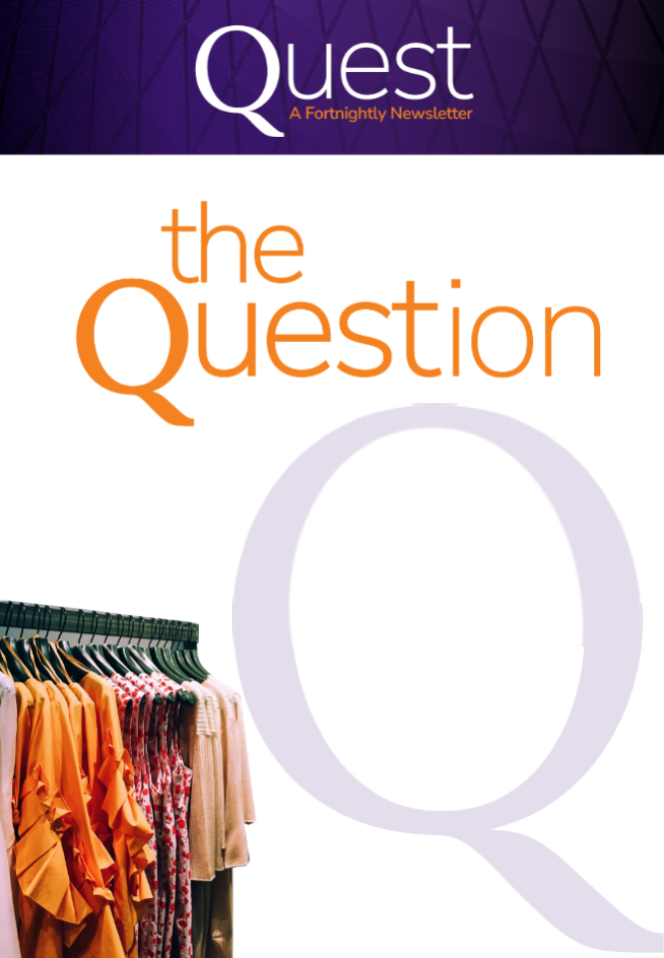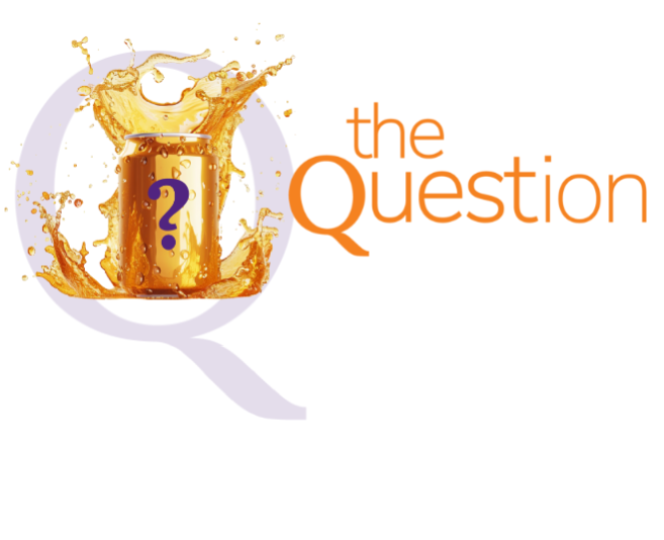Find the programme that meets your requirements and aspirations.
Apply now A newsletter by SPJIMR WISE Tech
A newsletter by SPJIMR WISE Tech
- SPJIMR
- Wise Innovation Studio for Emerging Technologies (WISE Tech)
- Quest
- Volume 1
- Edition 3
Volume 1 | Edition 3 | December 14, 2024
Quest examines innovation, technology adoption, and societal impact through a multidimensional Ethics-Responsibility-Sustainability (ERS) lens. A contemporary innovation-related event or trend in society triggers each narrative, be it an article, a case study, or an interview story. In response, the narrative raises a thought-provoking ERS question on the consequences of that event or trend in the future and initiates a discussion on what that may imply for managers and policymakers across a spectrum of businesses—from start-ups to large corporates.


Are nutra supplements supplementing your health?
Article
Ginseng dreams and vitamin nightmares:
The real deal with nutraceuticals
It’s late afternoon on a Wednesday, and Sumeeth, a young software developer, leans back in his chair, feeling the familiar pang of back pain. The last few days have been tough—his supply of Energizzium, the nutraceutical he’s relied on for years, has run out, and he’s missed taking it for three nights straight. A quick check on his 11emjee app shows relief: “Will be delivered by 9 PM today?” Energizzium has been his night-time ritual for four years. He reflects on when it all began…during the COVID-19 lockdown. Everyone was obsessed with immunity and wellness, and that’s when he first tried Energizzium. Since then, it’s become a permanent fixture on his nightstand.
Shrugging off his doubts, Sumeeth thinks, “Everyone is taking these, so it must be good… right?”
Sumeeth’s fictional story mirrors the growing reliance on nutraceuticals in modern lifestyles; particularly amongst the millennials and Gen-Z. From immunity boosters to brain vitamins to energy supplements, these products are often consumed for better health; particularly riding on the post-COVID health concerns of the consumers.

According to a 2022 survey by the
Council for Responsible Nutrition5,
~77% of adults in the U.S. reported
taking dietary supplements, with
immunity and overall wellness as
key motivators.
The term ‘nutraceuticals’ was coined in 1989 by Stephen DeFelice, founder and chairman of the Foundation for Innovation in Medicine1. Little did he know that this term would describe an industry worth billions three decades later2. Today, nutraceuticals have evolved into a global industry worth ~$407 billion in 2023, projected to grow to ~$948 billion by 20323 at a CAGR of 10%.
In India, the market was valued at ~$26 billion in 2023 and is expected to grow at a higher pace of 13.5% CAGR from 2024 to 20304.
Nutraceuticals vs. pharmaceuticals:
The regulatory puzzle

Even as nutraceuticals often
overlap with pharmaceuticals, they
don’t have to follow the stringent
regulatory norms prescribed for
the latter.
The meteoric rise of nutraceuticals has exposed regulatory grey areas. Consider melatonin: marketed as a dietary supplement in some countries and regulated as a prescription drug in others. Similarly, marketing of certain herbal supplements by St. John’s Wort6 is sold as a natural remedy for depression but lacks the clinical trials required for pharmaceutical antidepressants.
The National Institutes of Health reports that weight-loss products marketed as dietary supplements are sometimes adulterated or tainted with prescription-drug ingredients; controlled substances; or untested/unstudied, pharmaceutically active ingredients that could be harmful, underscoring the risks of under-regulation7.
This regulatory ambiguity raises significant safety concerns, particularly as products with medicinal-like claims often bypass rigorous testing required for medicines.
Consumer risks: Marketing vs. science


Do nutraceuticals address
genuine health needs or
imaginary problems?
Many nutraceutical brands promote aggressive (often fear-based) marketing of nutraceuticals. This often fosters dependency, and due to limited oversight, exposes the consumers to misinformation and health risks. A 2023 Advertising Standards Council of India report8 noted an increase in misleading health claims, particularly in immunity and weight-loss products.
For instance, weight-loss supplements often promise quick results but may include unapproved additives or pose risks of dependency. Likewise, energy supplements are advertised as natural energy enhancers without disclosing the long-term effects of consistent use.
Come back later? Receive Quest in your inbox. >
Ethical and environmental considerations as well

The environmental impact of
nutraceutical production cannot be
ignored in an era of heightened
environmental awareness9.
Behind the glossy labels and bold claims lies a complex web of ethical and sustainability concerns. Many nutraceuticals rely on energy-intensive manufacturing or unsustainable sourcing of ingredients. Moreover, their marketing often targets vulnerable populations, fostering dependency rather than encouraging balanced health practices.
The ethical question persists: Should profit-driven products dictate the health landscape, or should they focus on genuine societal benefit?
The role of the government: Bridging gaps
in regulation and accessibility
Globally, governments are tightening scrutiny over nutraceuticals. The EU mandates front-of-pack nutrition labels, and the U.S. Federal Trade Commission10 has previously fined several companies for misleading advertisements that exaggerated the health benefits of their products.
In India, nutraceuticals fall under the Food Safety and Standards Authority of India (FSSAI), but now the government has established a high-level committee to evaluate shifting the oversight of nutraceuticals to the Central Drugs Standard Control Organisation. This is to impose stricter standards, including Good Manufacturing Practices and price controls. To curb misleading claims, the FSSAI has also rolled out stricter labelling norms11, barring terms like “health drink” unless scientifically substantiated.
Such measures reflect an increasing focus on consumer safety and transparency.
Catching the nuances of the hype, hope,
and hazards of nutraceuticals
Why settle for a regular day when you can start it with a ginseng-powered boost? Or indulge without guilt knowing there are products to protect your liver? With a spoonful of an ayurvedic supplement, immortality feels within reach—until the jar runs out of course. But as we increasingly rely on these supplements, one question remains…


Are we genuinely enhancing our health,
or are we just buying into the next big trend?

Author of this edition: Siddharth Jain | | Researcher at SPJIMR WISE Tech
Sources
- Nutraceuticals: The link between nutrition and medicine, Journal of Toxicology: Cutaneous and Ocular Toxicology, 28th May, 2022. https://tinyurl.com/mrn82e53
- Nutraceuticals Market Size – Industry Report on Share, Growth Trends & Forecasts Analysis, 2024–2029, Retrieved 5th December, 2024. https://tinyurl.com/4df7k28h
- Nutraceuticals Market Size, Share and Growth Report, 2030, Retrieved 5th December, 2024. https://tinyurl.com/4hetny9p
- Govt panel to review if nutraceuticals should be brought under CDSCO, ET HealthWorld, 18th February, 2024. https://tinyurl.com/4npcj3y3
- 2022 CRN Consumer Survey on Dietary Supplements, Council for Responsible Nutrition. Retrieved November 27, 2024. https://tinyurl.com/2utzufve
- St. John’s Wort, National Center for Complementary and Integrative Health, October 2020. https://tinyurl.com/2j3fpvrr
- Dietary Supplements for Weight Loss, Fact Sheet for Health Professionals, National Institutes of Health, 18th May, 2022. https://tinyurl.com/45pt8ns7
- Annual Complaints Report 2023-24, The Advertising Standards Council of India (ASCI). https://tinyurl.com/4k7xc5ft
- Regulatory guidelines for nutraceuticals in India: an overview, Efficacy, Safety and Toxicity 2021, Nutraceuticals (Second Edition), Chapter 74. https://tinyurl.com/4pxjzrus
- Health Claims, Federal Trade Commission, Protecting America’s Consumers. https://tinyurl.com/5pjsun5j
- India’s FSSAI Rolls Out Re-Operationalized Nutraceutical Regulations, USDA Foreign Agricultural Service. 5th December 2022. https://tinyurl.com/4vepnjfh
Email us at wisetech@spjimr.org. >
Coming soon…

Slow on Resposibility…
The rigged game
of Fast Fashion
Upcoming editions of Quest

Will India’s
kirana stores
survive the quick
commerce disruption?

Slow on
Responsibility…
The rigged game
of Fast Fashion
Read our earlier editions



